<< Previous | Displaying results 4531-4540 of 6776 for "" | Next >>
At the end of World War II, more than three-quarters of the city of Nuremberg, Germany, lay in rubble. This US Army Air Corps color footage shows some of the war damage in Nuremberg, which had been host in the 1920s and 1930s to massive and lavish rallies for the Nazi party.
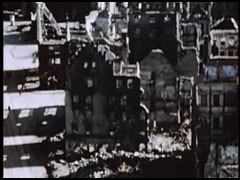
In the 1920s and 1930s, the German city of Nuremberg was host to massive and lavish rallies for the Nazi Party. This film footage, produced by Julien Bryan in 1937, shows saluting crowds in the Nuremberg stadium watching groups parade past Adolf Hitler.
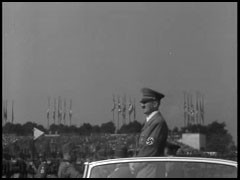
Lieutenant Colonel Baldwin of the US prosecution team presents the case against defendant Hans Frank at the Nuremberg trial. Baldwin refers to several of Frank's diary entries about the appropriation of scarce Polish grain for use as food in Germany.
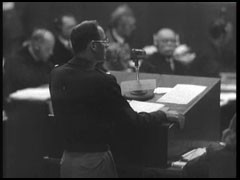
Defendant Hans Frank gives testimony to his defense lawyer during the Nuremberg trial about his leadership roles during the Third Reich.
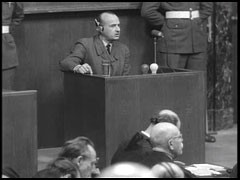
US prosecutor Thomas Dodd cross examines defandant Walter Funk, former president of the German national bank. Dodd questions Funk about the possessions confiscated from concentration camp prisoners and elsewhere in German-occupied territories.
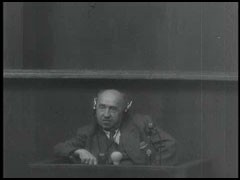
Defendant Hermann Göring, seated at left in the dock, listens as US Chief Prosecutor Robert Jackson interrogates witness Albert Kesselring about the Luftwaffe (German Air Force).
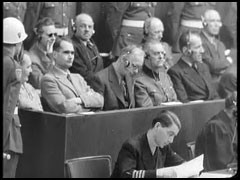
Hitler congratulates industrialist Gustav Krupp after presenting him with a Nazi party honor. After the ceremony, they toured a Krupp factory. This footage comes from the film "The Nazi Plan," produced and used by the United States in the prosecution at the Nuremberg trials.
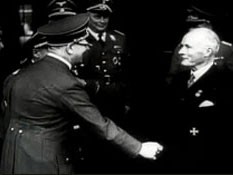
Francois Boix, a concentration camp survivor, testifies about Albert Speer's visit to the Mauthausen concentration camp. Boix identifies Speer by pointing to him in the defendants' dock.
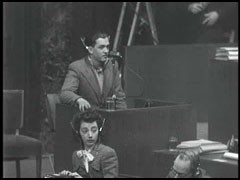
Defendant Albert Speer is sworn in at the International Military Tribunal.
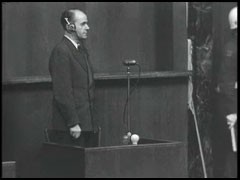
Albert Speer gives testimony at the International Military Tribunal. In 1942 Speer was named Minister of Armaments and Munitions, assuming significant responsibility for the German war economy. In this position, Speer used millions of forced laborers to raise economic production.
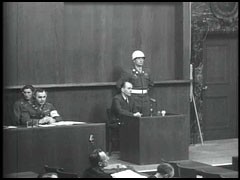
We would like to thank Crown Family Philanthropies, Abe and Ida Cooper Foundation, the Claims Conference, EVZ, and BMF for supporting the ongoing work to create content and resources for the Holocaust Encyclopedia. View the list of donor acknowledgement.